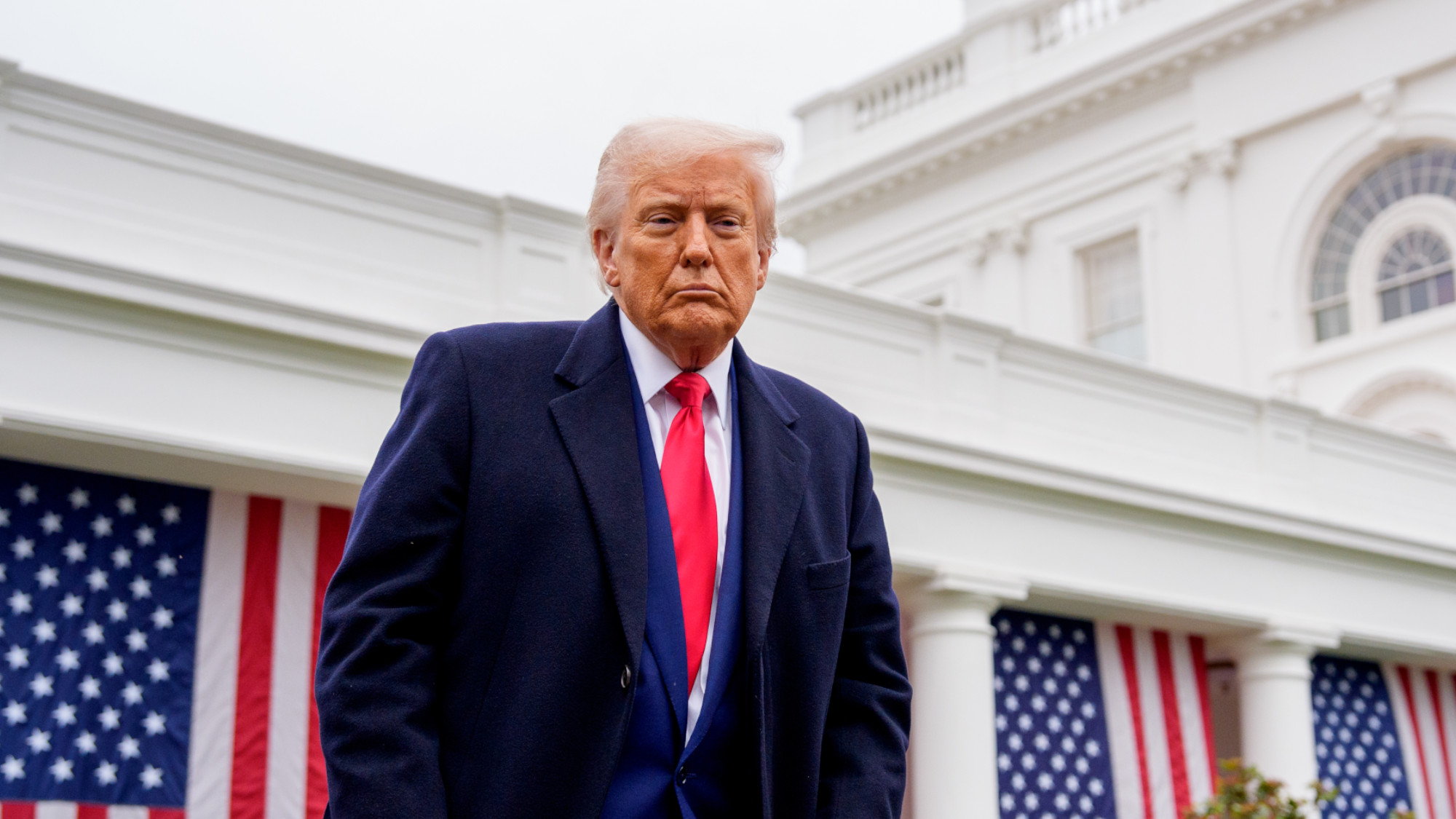Voting: Trump's plan to overhaul elections
Trump signed an executive order requiring voters to provide proof of citizenship and cutting federal election funding for states that use mail-in ballots

A free daily email with the biggest news stories of the day – and the best features from TheWeek.com
You are now subscribed
Your newsletter sign-up was successful
President Trump's "oh-so-fragile ego" compels him to "cast any vote won by an opponent as fraudulent," said Chris Brennan in USA Today. So it's no surprise that he signed an expansive executive order last week that would "rig elections in his favor." Most significantly, the order directs the Election Assistance Commission—a small federal agency— to require citizens who register to vote via a federal form to show proof of citizenship. That would put more than 21 million mostly low-income Americans who lack a passport or other approved document at risk of disenfranchisement. Trump's order "addresses no pressing problem in America," said The Washington Post in an editorial. "Voting experts have routinely demonstrated that illegal voting by noncitizens is exceedingly rare." Georgia, for example, audited its voter rolls last year and found only 20 noncitizens among its 8 million voters. Trump's order also takes aim at mail-in voting, which he has repeatedly claimed unfairly cost him the 2020 election, with a threat to pull federal election funding from the 18 states that count mail ballots sent before but received after Election Day.
Several lawsuits have already been filed against Trump's "amateurish order," said Noah Feldman in Bloomberg, and they're likely to win a block. For starters, the president has no authority over the EAC, an independent body created by Congress in 2002. Secondly, the National Voter Registration Act, a "binding federal law," says you can prove citizenship simply by checking a box saying so under threat of perjury—so you don't need a passport or Real ID driver's license to vote. Sure, the order contains "worrying and legally murky" aspects, said The Wall Street Journal in an editorial. But there are also "useful presidential prerogatives," including better equipping states to verify voter registration lists and telling the attorney general to prioritize enforcement of voting laws. Still, the Constitution explicitly vests the states with the power to set the rules for federal elections. Both Democrats and Republicans "should be wary of nationalizing voting, if only because neither wants the other in charge."
Trump's order isn't really about election policy, said Ari Berman in Mother Jones. The goal is to sow doubt among Americans about the sanctity of the vote. And even if Trump loses in court, "the order could have dangerous ramifications." A defeat would serve as a pretext for Trump "to make more bogus claims of voter fraud and attempt to overturn future elections." Our democracy is on very shaky ground.
The Week
Escape your echo chamber. Get the facts behind the news, plus analysis from multiple perspectives.

Sign up for The Week's Free Newsletters
From our morning news briefing to a weekly Good News Newsletter, get the best of The Week delivered directly to your inbox.
From our morning news briefing to a weekly Good News Newsletter, get the best of The Week delivered directly to your inbox.
A free daily email with the biggest news stories of the day – and the best features from TheWeek.com
-
 How the FCC’s ‘equal time’ rule works
How the FCC’s ‘equal time’ rule worksIn the Spotlight The law is at the heart of the Colbert-CBS conflict
-
 What is the endgame in the DHS shutdown?
What is the endgame in the DHS shutdown?Today’s Big Question Democrats want to rein in ICE’s immigration crackdown
-
 ‘Poor time management isn’t just an inconvenience’
‘Poor time management isn’t just an inconvenience’Instant Opinion Opinion, comment and editorials of the day
-
 ‘Poor time management isn’t just an inconvenience’
‘Poor time management isn’t just an inconvenience’Instant Opinion Opinion, comment and editorials of the day
-
 Witkoff and Kushner tackle Ukraine, Iran in Geneva
Witkoff and Kushner tackle Ukraine, Iran in GenevaSpeed Read Steve Witkoff and Jared Kushner held negotiations aimed at securing a nuclear deal with Iran and an end to Russia’s war in Ukraine
-
 Kurt Olsen: Trump’s ‘Stop the Steal’ lawyer playing a major White House role
Kurt Olsen: Trump’s ‘Stop the Steal’ lawyer playing a major White House roleIn the Spotlight Olsen reportedly has access to significant US intelligence
-
 Trump’s EPA kills legal basis for federal climate policy
Trump’s EPA kills legal basis for federal climate policySpeed Read The government’s authority to regulate several planet-warming pollutants has been repealed
-
 House votes to end Trump’s Canada tariffs
House votes to end Trump’s Canada tariffsSpeed Read Six Republicans joined with Democrats to repeal the president’s tariffs
-
 Bondi, Democrats clash over Epstein in hearing
Bondi, Democrats clash over Epstein in hearingSpeed Read Attorney General Pam Bondi ignored survivors of convicted sex offender Jeffrey Epstein and demanded that Democrats apologize to Trump
-
 Judge blocks Trump suit for Michigan voter rolls
Judge blocks Trump suit for Michigan voter rollsSpeed Read A Trump-appointed federal judge rejected the administration’s demand for voters’ personal data
-
 US to send 200 troops to Nigeria to train army
US to send 200 troops to Nigeria to train armySpeed Read Trump has accused the West African government of failing to protect Christians from terrorist attacks